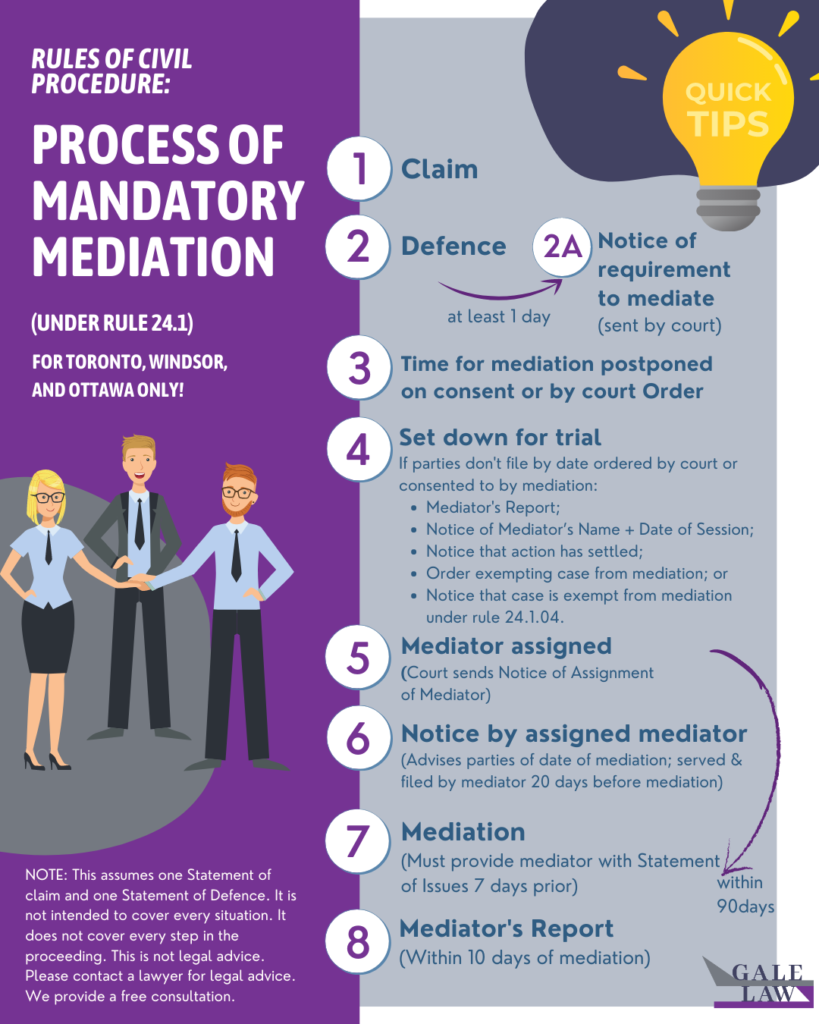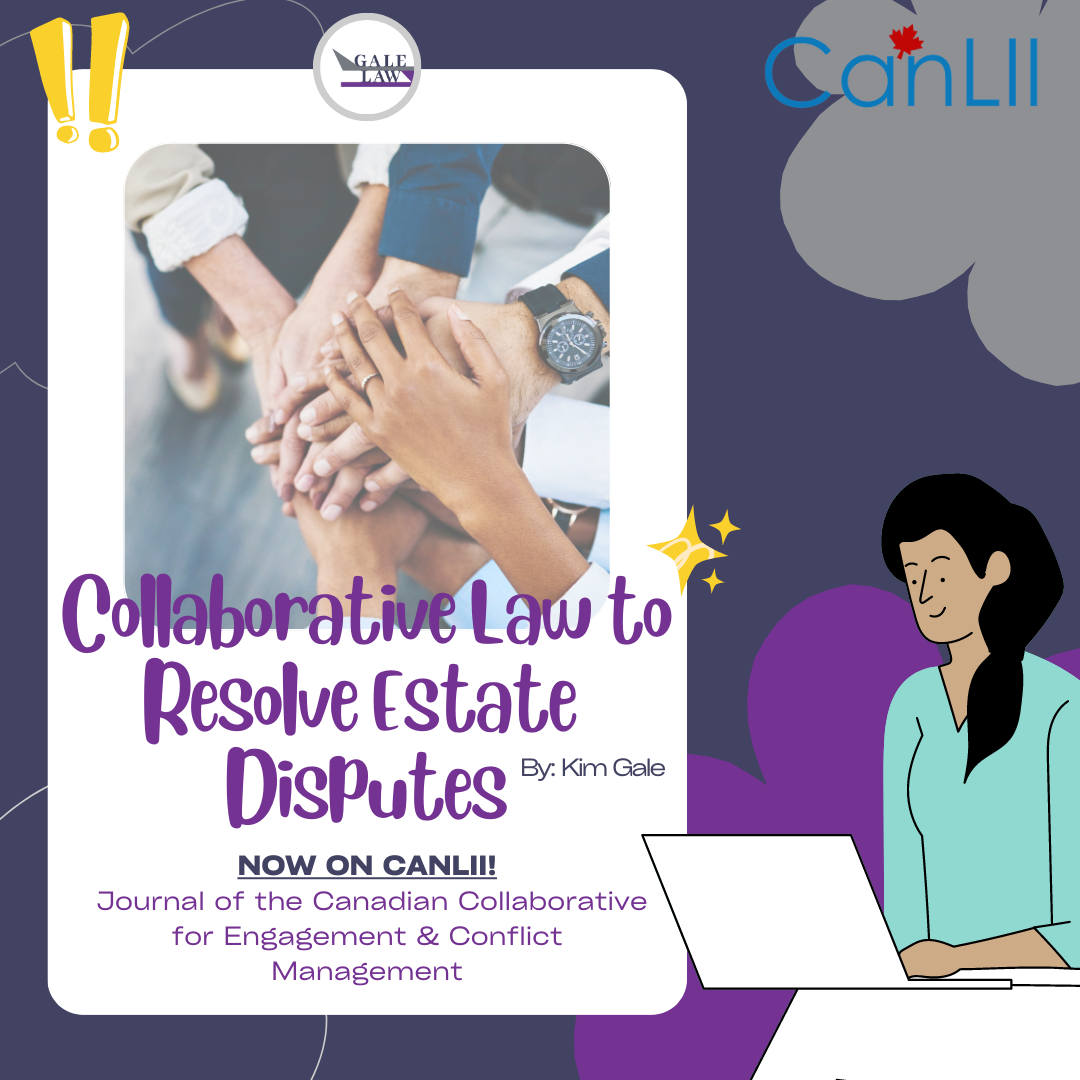

Why Mediate with Gale Law?
Kim Gale is an experienced estate litigation lawyer and has completed her Masters of Law in Dispute Resolution (Mediation) from Osgoode Hall Law School in Toronto with her convocation this summer of 2023. She is a qualified mediator, dealing with disputes in all estate litigation matters, including dependent support claims, powers of attorney, estate administration, will challenges, and passing of accounts.
Kim's interest in estates law peaked in 2013 after working as an assistant for an estate litigation lawyer. She pursued her dream of attending law school and graduated from City University of London in the UK and worked as a paralegal after her studies in London, England. She moved back to Toronto to pursue a career in estate litigation and articled and worked as an associate at estate litigation boutiques.
After being called to the Bar in 2018 and opening Gale Law in 2019, Kim understood that individuals require more options to settle their complex legal issues that do not involve the high legal costs and stress that goes along with attending court. This motivated her to receive her Masters of Law in Dispute Resolution, where Kim has learned techniques from some of the industry’s best mediators.
In Toronto for estate disputes, mediation is a mandatory step in the litigation process which must take place before the final hearing. This means that most estate matters in litigation require a neutral and knowledgeable mediator who is an expert in the field. Kim is able to hone her skills as an LL.M. graduate and lawyer specializing in estate disputes and act as an effective mediator with the goal of listening, communicating and negotiating to resolve disputes.
Gale Mediation offers flexible mediation services with an expertise in estates.
What are the Benefits of Mediation?
There are many reasons as to why estate mediation is so beneficial to all parties involved in a dispute.
- Save legal costs,
- Less formal process compared to attending court,
- Allows for creative and customized resolutions,
- Possible preservation of relationship between the parties,
- Strong focus on collaboration and problem-solving,
- Greater degree of party control of the outcome,
- Confidential and not open to the public, and
- Outcome can be reached quicker.
To learn more about Ontario's mandatory mediation process, click here.

Check out some of our Blogs!

NOW ON CANLII: Collaborative Law to Resolve Estate Disputes

NOW ON CANLII: What you Can Learn Conflict Resolution from Harry Potter?

Legal Aid Services & Estates Law
